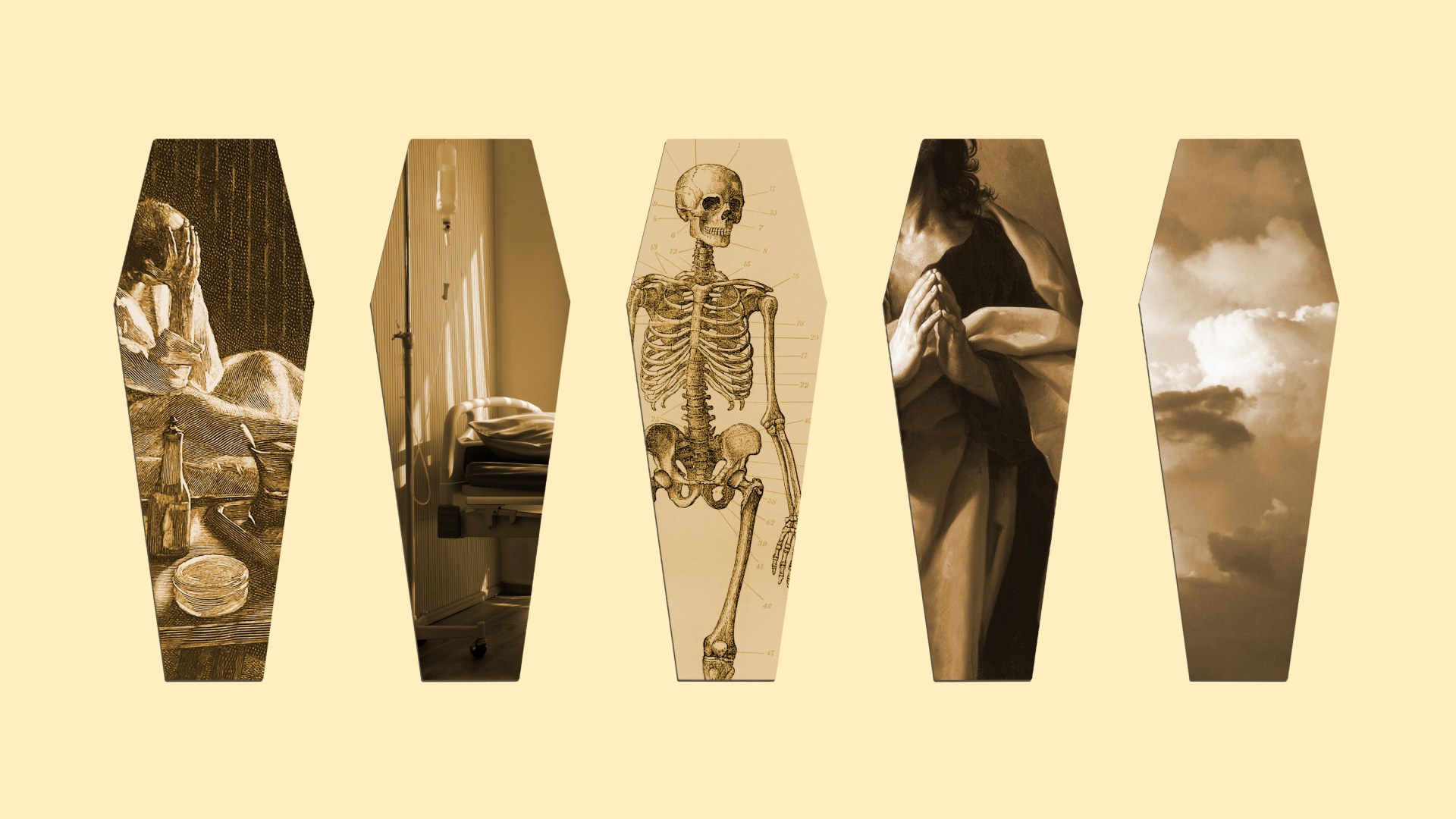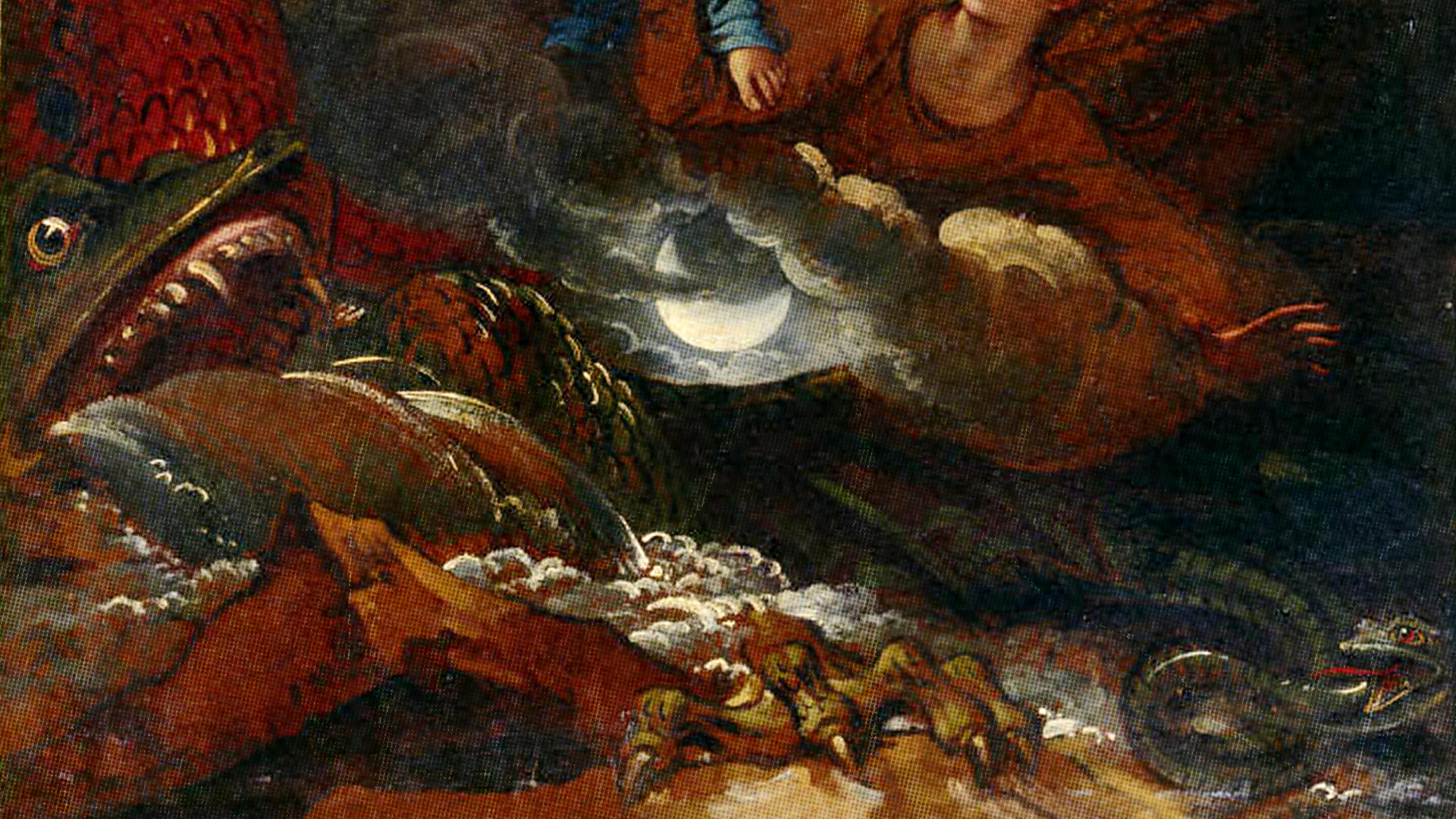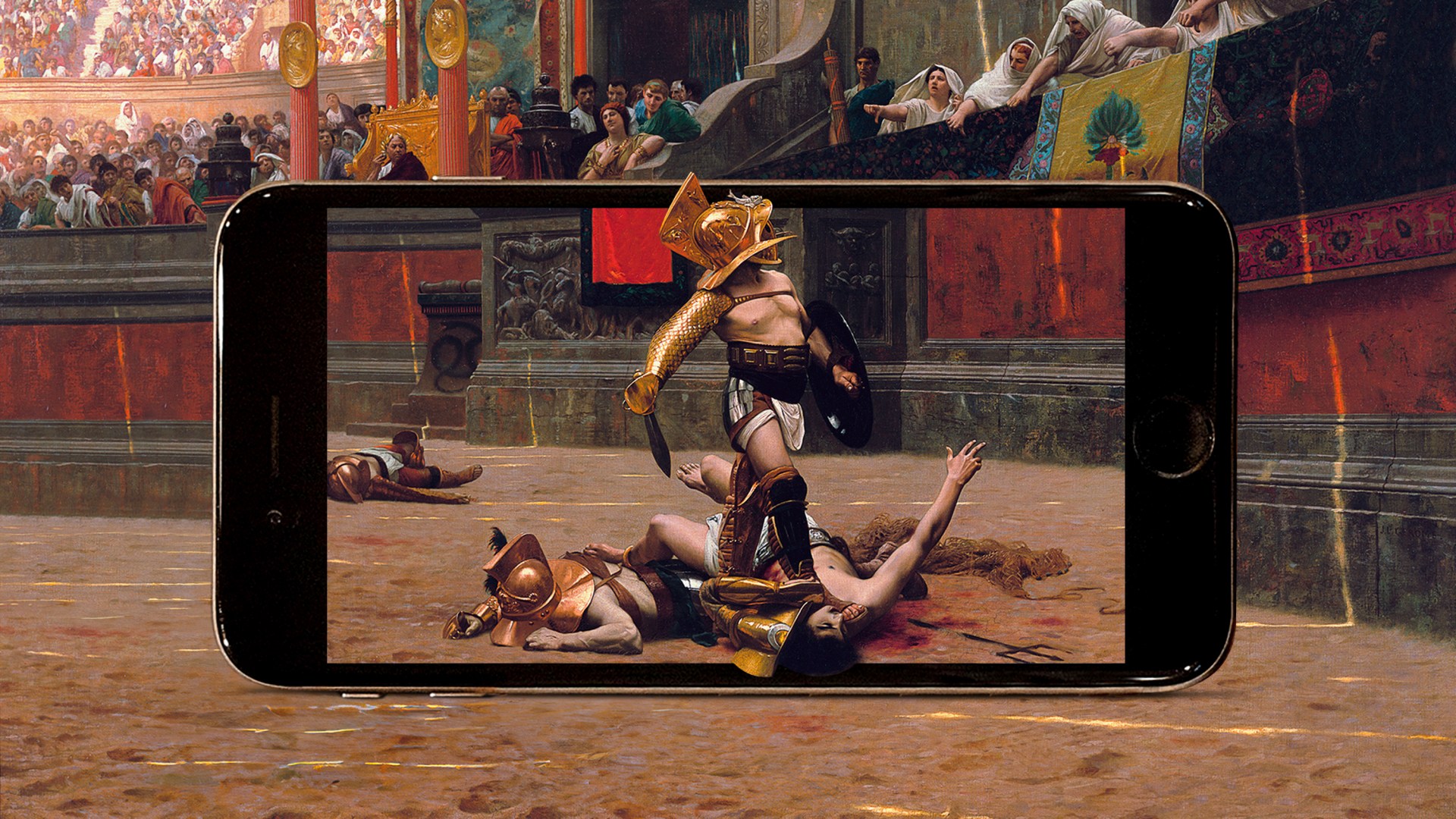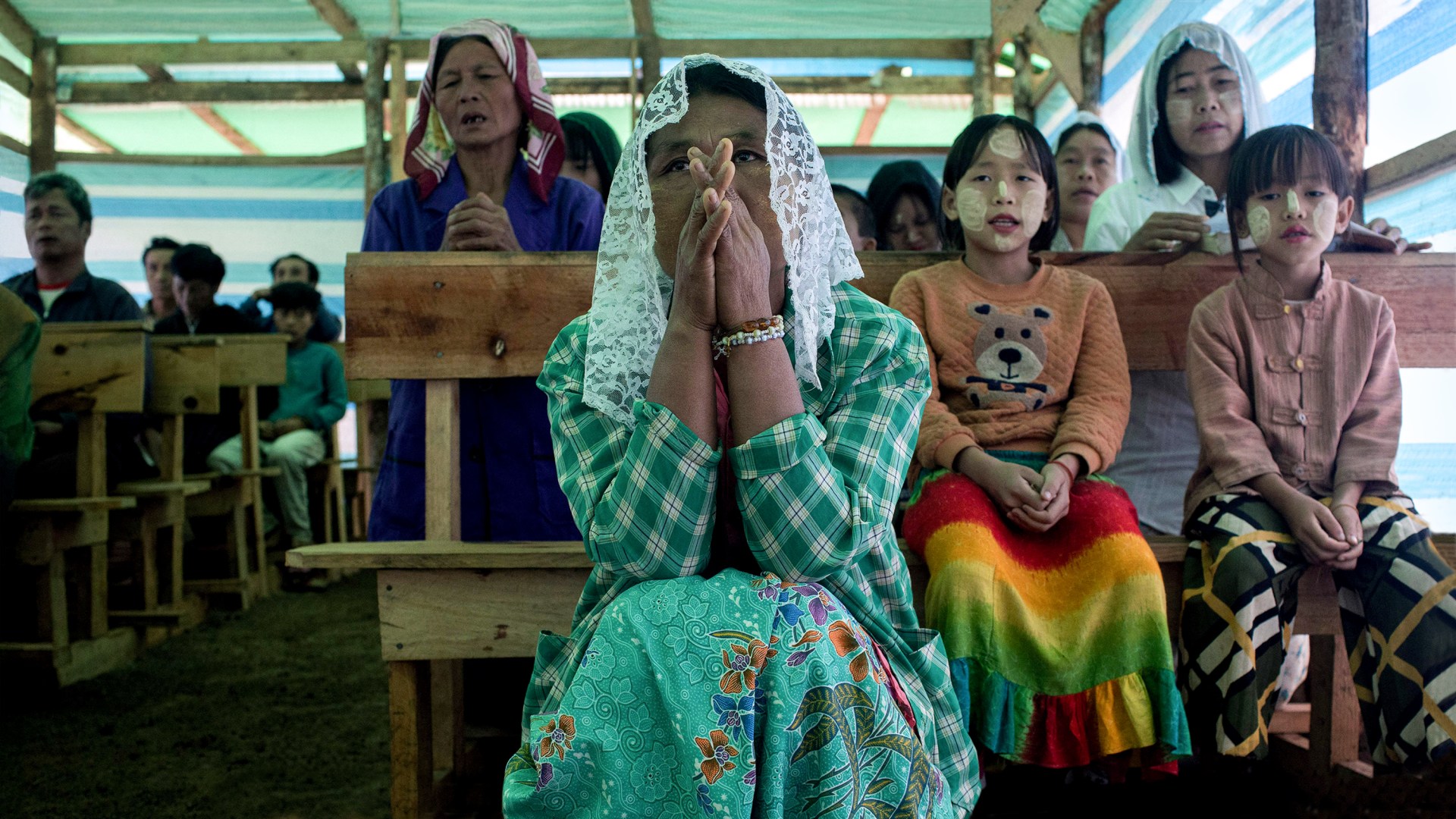As an uprooted sixth grader in the early ’80s, I was willing to try anything to make new friends—including attending my first horror film. The low-budget B movie about a resurrected mummy who plagues college students now seems quite tame, but it scared me out of my seat (and into the theater lobby) twice. A few years later, the adaptation of Stephen King’s werewolf-filled Silver Bullet so unsettled me that for long afterward I had to gird my loins each time I ventured into our neighborhood’s shadowy woods.
Should I have averted my eyes altogether? Or did my terror—detached from an actual, immediate threat—prepare me for real-world trauma? Can believers who have received a spirit not of fear but of “power, love and self-discipline” (2 Tim. 1:7) possibly justify toying with trepidation, even in imaginary spaces?
The poet Samuel Coleridge threw down the gauntlet in the early 19th-century culture wars when he declared that reading about “giants and magicians and genii” as a child granted his mind “a love of the Great and the Whole.” C. S. Lewis echoed these sentiments a century later. He held that the fear engendered by certain types of adventure and fantasy fiction could ennoble readers of all ages, teaching us that “immemorial comforters and protectors, the radiant ones” exist to combat evil. Instead of tossing scary, supernatural stories into the bottomless pit, both writers contend that such tales prepare the mind to embrace deep truth.
Fictional threats—zombies, vampires, and hostile extraterrestrials—are one thing. Thrillers about real terrors—kidnappings, torture, serial killings—hit harder, having stolen their dramatic force from real-world crimes.
Tales dramatizing spiritual warfare, however, are another species entirely. For the believer, they can feel too scary—not equipping us to combat evil but overwhelming us with their power.
Exorcism movies are experiencing something of a renaissance. Several recent titles—The Pope’s Exorcist (2023), The Exorcist: Believer (2023), The Exorcism (2024), The Deliverance (2024)—coincide with the 50th anniversary of The Exorcist (1973), which splattered the silver screen with the foulest language and images imaginable. Such cinematic offerings seek not to subtly disrobe that dark expert at angelic disguise (2 Cor. 11:14) but to blazon the depredations of a leonine prowler seeking someone to devour (1 Pet. 5:8).
The boy who fled into the theater lobby now draws others toward films as a vocation. (I’m a literature and film professor.) And though I don’t teach classes that focus on horror, I do incorporate the occasional exorcism tale into my introductory film course. Features like Scott Derrickson’s The Exorcism of Emily Rose (a personal favorite) take our struggle with “this dark world” as seriously as the early Christians did (Eph. 6:12).
Revisiting such fare, particularly in late October, reminds us that the “spiritual forces of evil” identified by Paul should be treated more seriously than Halloween’s flippant displays of gore and ghoulishness would suggest.
Though far from theological treatises, each of these exorcism movies does pose questions about the nature of demonic possession—about good and evil, free will and fate. If submission to God ensures that Satan will flee when resisted (James 4:7) and believers can resist any temptation they face (1 Cor. 10:13), then do demons only gain entry when invited—like the vampires in old creature features? Once they acquire a foothold, does removal require outside intervention? What role does the host play in their own emancipation?
Hollywood would have us think the answers as numerous as the directors tackling the subject. The Pope’s Exorcist configures possession like a mousetrap that springs once a vulnerable, already-traumatized innocent enters its domain. Exorcist: Believer places a little blame on its possessed adolescents for attempting to contact a deceased parent with candle and pendulum in hand but similarly avoids censuring them for the havoc they wreak once possessed. Instead of beginning in medias res, with each possession already in motion, both stories spotlight their victims’ childlike before to throw their monstrous after into greater relief.
Scripture itself provides no single pathway into possession. Readers are left to imagine how the seven demons cast from Mary Magdalene (Luke 8:2) entered her in the first place and whether any particular sins committed by the superhumanly strong tomb-dweller in Gerasenes granted Legion entry into his mind (Mark 5:1–20).
There is, however, a clear escape from demonic influence, always involving either the person or name of Christ. Whether Jesus himself casts out the demon or his disciples do so in his name, the message is the same.
Fortunately, films involving exorcisms often not only acknowledge the reality of supernatural evil but also point to the one who is able to overcome it. The question is “Who can access his power?”
Rescue traditionally rides in on the cassock of a priest armed with Scripture, holy water, and an enviable supply of conviction. In the 1973 original, faith and experience fail to prevent Father Merrin’s untimely death; he only saves young Regan by committing suicide once he’s drawn the demon into himself. The Pope’s Exorcist grants Christ a bit more power, its priestly duo effectively wielding the Word of God (Eph. 6:17) after confessing to one another those sins Satan will otherwise use against them. Once again, a priest saves an innocent via demonic absorption—but this time his partner’s invocation of Jesus’ name prevents any fatalities.
The Exorcist: Believer kicks precedent to the curb. A swelling musical score marks Father Maddox’s dramatic entrance, feigning deliverance via priest. But his efforts are abruptly interrupted when his neck is telekinetically snapped. The script’s effort at inclusivity (with help from cowriter and CT podcast guest Scott Teems) demands that salvation arrive with the help of assorted neighbors, four ideologically contrary parents, a nurse, pastors from different traditions, and a motivational speaker who vaguely invokes “the name of all holy beings” and equates “faith in each other” with faith in God.
Lee Daniels’s The Deliverance shares standard features with its forebears, including a haunted house and a couple deaths to signal the demon’s power. But it takes a hard right toward the unexpected idea that a laywoman’s faith is enough to repel the Evil One. The pastor who attempts the “deliverance” of young Dre dismisses the need for a professional intercessor, proclaiming that one need only act with the authority of Christ to drive out a demon. When she fails in her own attempt, she explains with her dying breath that she faltered due to fear.
It is left to her listener, a single mother who has long spurned religion as a “fix” every bit as addictive as the alcohol she regularly imbibes, to prove the adage that “perfect love drives out fear” (1 John 4:18) and to drive the demons from her own children. Carrying the burdens of sexual assault, emotional abuse, divorce, and financial strain has long impaired Ebony Jackson’s ability to parent her three kids. Stressed, snappish, and regularly drunk, she reacts to her children’s plights with either aggression or slurred speech. She is the last hero one would expect in an exorcism movie.
Could she also be the perfect hero? When her possessed children’s inexplicable behavior drives her to her knees for the first time in her life, the prayer that follows is dragged from the depths of her soul, just as the tortured cry “Jesus” later bursts from a frame contorted by the demon’s onslaught.
And it is enough.
Scripture offers a number of direct alternatives to fear and its maverick cousin, anxiety, including confidence (Ps. 27:3), courage (Josh. 1:9), peace (John 14:27), and delight (Ps. 94:19). Fitted together, a beautiful tableau emerges of the equipped, stalwart Christian. The Christian’s virtues are akin to a stained-glass window, translating the blinding sunlight of the Spirit into colors we can bear.
But in every rose window, lines of lead help delineate the design. Contrasting darkness makes adjacent colors pop. In the same way, fantastic, disturbing dramatizations of sin and suffering accentuate the virtues extolled by Paul in Philippians 4:8. “Whatever is true” comes into greater relief when juxtaposed against the enticing deceit of the Adversary.
Victory doesn’t require a demonology expert or priest, holy water or magical incantations. At their best, exorcism movies remind us of the Spirit-filled power available to every believer. With Christ before us, we can ourselves become the “immemorial comforters and protectors.” There’s no need to hide in the lobby.


































































